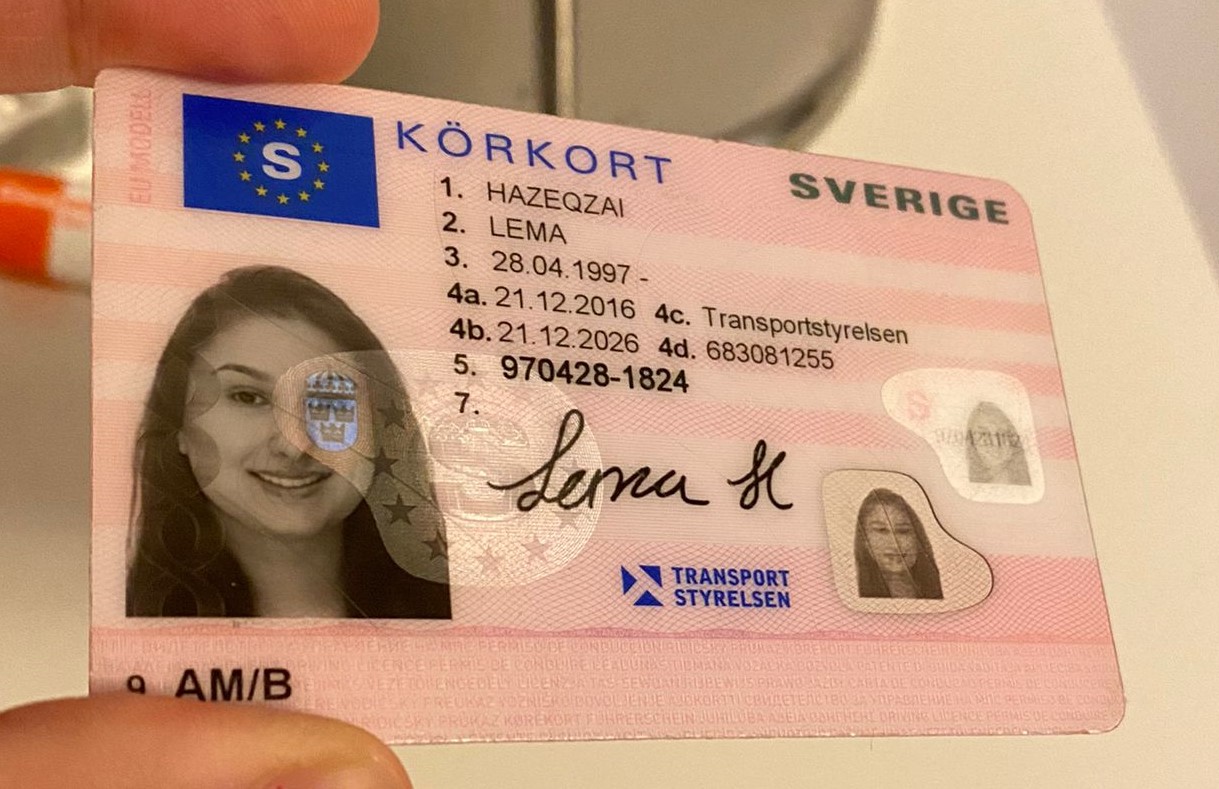댓글 0
등록된 댓글이 없습니다.

As innovation continues to develop at an extraordinary rate, different sectors are accepting developments to improve user experience and efficiency. Among the locations experiencing substantial improvement is identity management, especially concerning driving licenses. With the introduction of digital licenses and advanced recognition approaches, the landscape of driving license ID handling is anticipated to undergo considerable modifications by 2025. This article explores the anticipated developments in driving license ID handling, the ramifications for users, and responses often asked questions about the future of driving licenses.
Driving licenses have traditionally worked as a means of identifying a person's authority to run a motor automobile. They likewise serve several secondary functions, Körkortsonline including age confirmation and identity confirmation for banking and travel. However, the physical card system has limitations, consisting of threats of counterfeiting, loss, and outdated details. As society seriously relies on efficient and safe recognition systems, the shift toward digital licenses is becoming significantly popular.
Digital Licenses: Many states are piloting digital driving licenses that permit users to save their qualifications on their smart devices. These digital licenses are designed with sophisticated security functions, consisting of biometric information, and can be scanned or shared safely.
Blockchain Technology: Some jurisdictions are checking out blockchain to enhance the security and credibility of driving licenses. This technology guarantees that details can not be tampered with and that the information is quickly proven.

Facial Recognition: Increasingly used in identification practices, facial acknowledgment technology can accelerate the procedure of verifying a person's identity against their driving license. This technology likewise helps reduce scams and keep the stability of the licensing systems.
Multi-Functional Licenses: Future driving licenses might incorporate extra functions such as health records, travel documentation, and even payment systems, supplying a thorough identity solution.
The shift towards digital driving licenses provides numerous advantages, consisting of:
Convenience: Users can access their licenses anytime, which removes the requirement for physical cards. This is especially useful when individuals forget their license, as digital copies can be recovered rapidly.
Security: Advanced security measures can reduce the risk of identity theft, scams, and unauthorized duplication. Digital licenses frequently consist of encryption and biometric verification.

Efficiency: Reduced wait times at government offices and during traffic stops, as police can confirm digital licenses instantly.
While the improvements in driving license ID managing present many advantages, they likewise feature challenges. Users need to adjust to brand-new innovation and ensure they comprehend the modifications and their implications. Here are some considerations:
Privacy Concerns: With increased digital footprints, there will be increased issues over data privacy and how biometric information is stored and used.
Ease of access Issues: Individuals without access to smartphones or digital technologies may deal with barriers to getting and using digital licenses.
Regulative Compliance: With various jurisdictions embracing various systems and processes, users should be mindful of their regional laws concerning digital licenses and recognition.
| Aspect | Existing Status | Anticipated Change by 2025 |
|---|---|---|
| License Format | Physical cards | Mainly digital licenses |
| Verification Process | Manual checks | Automated biometric verification |
| Security Measures | Basic holograms and functions | Advanced file encryption and blockchain |
| Jurisdictional Differences | Fragmented processes across states | More standardized national systems |
| User Interaction | In-person renewals and checks | Mobile applications for management |
1. What is a digital driving license?A digital driving license is an electronic version of a standard driving license that is kept on a mobile device. It can be used for identification and confirmation in different circumstances, with improved security functions to avoid scams.
2. How will digital licenses enhance security?Digital licenses utilize file encryption and biometric information, making them more challenging to forge or abuse compared to traditional cards. Furthermore, blockchain technology can ensure information authenticity and integrity.
3. Will everyone be needed to change to a digital license?While many jurisdictions are approaching digital licenses, policies might differ. Users are motivated to talk to their local licensing authorities for particular standards.
4. What are the prospective disadvantages of digital licenses?Some prospective drawbacks consist of personal privacy concerns relating to data storage, ease of access problems for people without smartphones or digital literacy, and the requirement for a robust regulative structure to manage security and user rights.
5. How can I get ready for the shift to digital licenses?Stay notified about local efforts concerning digital licenses, explore offered mobile applications for managing identification, and cultivate digital literacy to browse brand-new technologies confidently.
The future of driving licenses and ID handling is poised for considerable advancement by 2025. As digital licenses end up being more widespread, users will experience enhanced security, convenience, and performance. Nevertheless, together with the benefits come challenges that will require public awareness and adjustment. Stakeholders must focus on education, regulation, and availability to guarantee a smooth transition that empowers people with the identification tools of the future. As technology advances, so too will the approaches through which society manages identity, particularly important in procedures as fundamental as running a motor automobile.
0등록된 댓글이 없습니다.